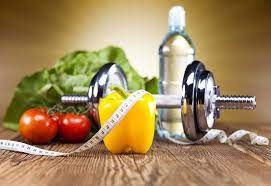Tips for a healthy diet
You can make healthier choices by following these 8 practical tips which cover the basics of healthy eating. Eating the right amount of calories is the key to a healthy diet, to balance the energy you consume with the energy you use.
You will put on weight if you eat and drink more than your body requires because the energy which is not used is stored as fat. On the other hand eating and drinking, too little will lose weight.
A balanced diet means you should eat a variety of foods and your body is receiving all the nutrients it requires.
It’s recommended that:
Men need about 2,500 calories every day (10,500 kilojoules).
Around 2,000 calories per day are recommended for women (8,400 kilojoules).
Most adults in the USA and UK are eating more calories than they need, and it is suggested that they should intake fewer calories.
Must take breakfast
For losing weight Some people skip breakfast, but breakfast high in fiber and low in fat, sugar, and salt is recommended and it is an integral part of the balanced diet to get the nutrients a human body needs for good health.
Higher fiber starchy carbohydrates meals
Starchy carbohydrates include potatoes, bread, rice, pasta, and cereals and they should make up just over a third of the food. Higher fiber or wholegrain varieties should be chosen, for example, wholewheat pasta, brown rice, or potatoes with their skins on. Brown contains more fiber than white or refined starchy carbohydrates and can help you feel full for longer.
At least 1 starchy food with each main meal should be included. Some people assume that starchy foods are fattening, but gram for gram the carbohydrate they contain provides fewer than half the calories of fat.
Tips for a healthy diet is that you should be vigilant when adding fat to what you’re cooking or serving these types of foods because that’s what increases the content of calories – such as oil on chips, butter on bread, and creamy sauces on pasta.
Cut down on fat and sugar
Saturated fat
Fats are also an important part of the diet. You may also need some fat in the diet, but it’s important to pay attention to the quantity, quality, and type of fat you are taking in.
2 main types of fat: saturated and unsaturated. Saturated fats increase the amount of cholesterol in the blood, ultimately increasing the risk of heart disease.
On average, men have to take no more than 30g of saturated fat per day.
On average, women have to take no more than 20g of saturated fat per day.
Saturated fat is found in the following foods:
- Fatty cuts of meat
- Pies
- Cakes
- Butter
- Sausages
- Lard
- Hard cheese
- Cream
- Biscuits
You should try to cut down your saturated fat intake and choose a meal that contains unsaturated fats instead.
Sugar
Consuming foods and drinks with high sugar regularly increases the risk of obesity and tooth decay.
Consume less salt
Tips for a healthy diet is that too much salt increases blood pressure. High blood pressure is more likely to develop or increase heart disease or have a stroke. You may still be eating too much, even if you do not add salt to your food. Almost three-quarters of the salt is already in the food when you buy it, such as breakfast cereals, soups, bread, and sauces.
Higher intake of fruit and vegetables
It’s recommended that you should eat at least a variety of fruit and vegetables every day. These can be frozen or fresh, dried, canned, or juiced. An apple a day keeps the doctor away. Chop a banana for breakfast cereal, or try to swap your diet from a snack for a piece of fresh fruit.
Eat more fish
Fish is a good source of vitamins and minerals and contains many proteins. Make your goal to eat at least 2 portions of fish in a week, including oily fish. Oily fish have high omega-3 fats, which help in preventing heart diseases.
Oily fishes:
- Salmon
- Herring
- Sardines
- Trout
- Pilchards
- mackerel
Non-oily fish:
- Haddock
- Coley
- Tuna
- Hake
- Cod
- skate
You can also select from fresh, frozen, and canned.
Be active and get a healthy weight
Regular exercise may help to reduce the risk of serious health conditions. Exercise and walking are also important for the overall health and well-being of human beings. Being overweight or obese can lead to serious health conditions, for example, diabetes, cancer, heart disease & stroke. BMI Body Mass Index is a tool used to calculate your weight.
Drink Plenty of Water
Drink plenty of water to stop getting dehydrated. Drinking 6 to 8 glasses every day is recommended by the government. Try to use non-alcoholic drinks and avoid alcoholic drinks. Try to not use sugary soft and fizzy drinks.
Diabetic patients should try to avoid intake of fresh and packed juices because they have high levels of sugar in them. Consult a doctor before using any kind of juice.
Click here for more Blogs
Click here for more videos

